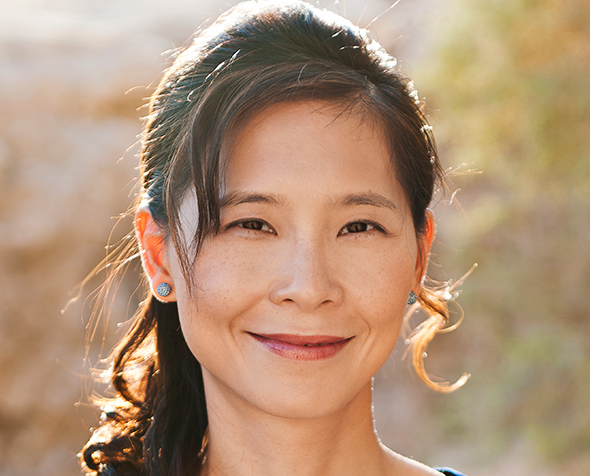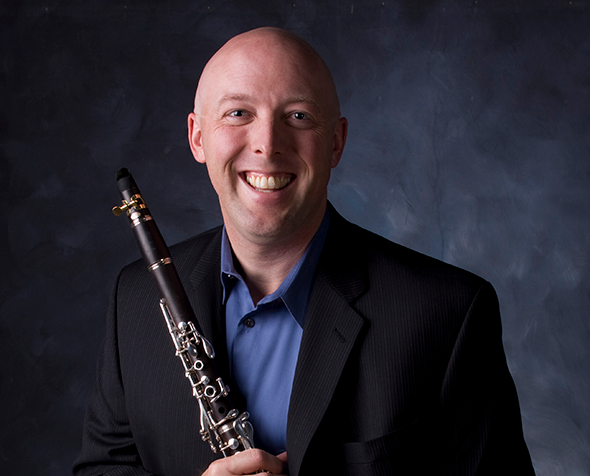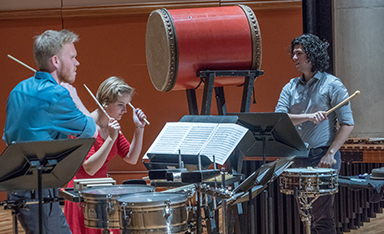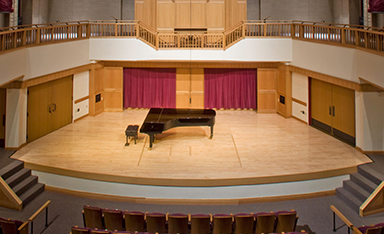Lamont Faculty Profile: Art Bouton
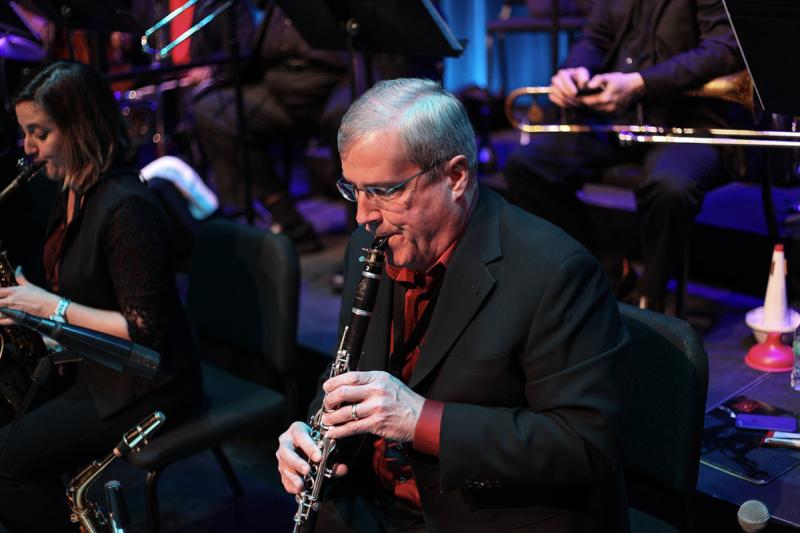
Immediately after sitting down with Prof. Art Bouton in his saxophone studio, I was met head-on with Art’s humor and self-effacing charm. “What you need to know,” he said, “is that I should not have this job. I should not have success. It’s all a huge mistake.”
Over the last 38 years, Bouton has been a fixture at DU and in the Colorado music community. In addition to teaching saxophone at Lamont, he has also been Director of Admission, Chair of the Woodwind Department, Chair of the Jazz Department, and even Lamont Assistant Director. Off campus, one can spot Bouton wherever music is happening: at Denver’s premier jazz spots, in the pit at the Buell Theater for Broadway shows or at the Ellie Caulkins Opera House for the Colorado Ballet, on stage with the Colorado Symphony, or playing in the sax section of the Colorado Jazz Repertory Orchestra (CJRO), a professional big band he founded in 2012 and continues to lead.
Art calls his journey to a tenured saxophone professorship “a circuitous path.” He grew up in Maryland, a self-described tech nerd, and played clarinet and bassoon before finding his voice on the saxophone. Thanks to parental pressure, he started an engineering degree at the University of Maryland, but Art’s heart wasn’t in it. He transferred to Towson State, which had a renowned jazz program, and put himself through school. “That degree took a long time,” Art said, but it paid off.
Bouton joined the Air Force Band of the West in Riverside, CA, and took lessons on all woodwinds while gigging furiously in the LA jazz scene. “I was an incredibly driven musician,” he recalled. Four hours after his first daughter was born, he auditioned for a master’s degree at the University of Redlands, and, to his surprise, was offered a teaching position there.
A job with the Air Force Academy Band in Colorado Springs brought Art to Colorado. In a similar twist of fate, it was while applying to finish his master’s degree at DU in 1986 that he was brought on as adjunct saxophone faculty at Lamont. Two years later, Joe Docksey created a full-time position that included the admission role, but the position was not tenure-track. It was not until 2011 that Bouton was made Full Professor with tenure.
Those early years at Lamont were scrappy, but the community—then at a separate campus in Park Hill—was very close-knit. “It was a lot of fun,” Art remembered.
Bouton is proud of his students, who are working all over the country in all sorts of contexts: jazz groups, military bands, classical ensembles, and pop and rock bands. “I say to my students that my goal is to make that orange thing hanging around your neck transparent so that you can do whatever you want to do with it,” Art told me. About his own playing, he dead-panned, “I’m exactly as good as I need to be. There is no wasted virtuosity on the instruments I play.”
Adding to Art’s legacy is his career-long commitment to musical citizenship. “It’s important to contribute to our society,” he said. Bouton led the team in negotiating the theater contracts with the Denver Center for the Performing Arts, and, as Chair of the Lone Tree Cultural Arts Foundation, played a key role in the funding and construction of the Lone Tree Arts Center, leading to the founding of the CJRO.
“CJRO was my attempt to make up for every bad gig I ever had,” Art told me. He aims to attract “the best players, play the best music,” treat the players and attendees well, and make a real connection between the band and their often-sold-out audiences.
As for what’s next, Bouton says he’s not even close to full retirement. He’ll stay on as Executive Director and lead alto with the CJRO, continue to play shows at the Buell, and of course, visit his children (Jenny, who plays piccolo with the Milwaukee Symphony, and Rachel, who performs musical theater improv in New York), along with his three grandchildren. His wife, Jacinda, a musical force of her own, will continue as Music Director of the Lone Tree Symphony Orchestra and Denver Concert Band. “We hear from people who are fully retired,” Art said, and he understands the appeal. But, for now, he added, “we are totally happy doing this.”
